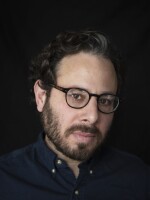AILSA CHANG, HOST:
As hospitals were overrun by coronavirus patients in other parts of the world, the Army Corps of Engineers mobilized in the U.S. The agency scrambled to hire contractors and build emergency field hospitals around the country at a cost of more than $660 million. But nearly four months into this pandemic, most of these facilities have never treated a single patient. NPR's Joel Rose reports.
JOEL ROSE, BYLINE: At the beginning of April, workers rushed to transform Chicago's McCormick Place into a temporary field hospital.
(SOUNDBITE OF ARCHIVED RECORDING)
JB PRITZKER: Five short days ago, this was an empty convention hall.
ROSE: Governor J.B. Pritzker said the facility would soon have 3,000 beds, more than the biggest hospital in Illinois.
(SOUNDBITE OF ARCHIVED RECORDING)
PRITZKER: Monumental 'round-the-clock dedication is what got this done before we need it, preparing for saving lives in the event that things become as bad as some have predicted.
ROSE: Around the country, private contractors hired by the Army Corps of Engineers transformed convention centers and built climate-controlled tent hospitals. We tracked down federal spending on more than 30 projects. All told, it added up to more than $660 million. Army Corps officials pushed to get the job done quickly, limiting the bidding process and often negotiating directly with contractors they knew could deliver on time. Here's the head of the Army Corps, Lieutenant General Todd Semonite.
(SOUNDBITE OF ARCHIVED RECORDING)
TODD SEMONITE: I tell our guys, you have three weeks; you get as much as you can done in three weeks and then mission's complete because we have a very, very narrow window of opportunity. And we - if we don't leverage that opportunity, we're going to miss it.
ROSE: But just as construction got underway, states were issuing stay-at-home orders, and the spread of coronavirus cases eventually began to slow. By the time the Chicago field hospital was complete, it had been scaled back and closed its doors a few weeks later after treating fewer than 40 patients. The same story is playing out across the country. In fact, most of the field hospitals are done but haven't seen a single patient. Still, the nation's governors say they're relieved.
(SOUNDBITE OF MONTAGE)
RON DESANTIS: All those field hospitals and available beds sit empty today, and that's a very, very good thing.
GRETCHEN WHITMER: These thousand-bed alternate care sites are not necessary. They're not filled. Thank God.
ROSE: That's Florida Gov. Ron DeSantis, a Republican, and Democrat Gretchen Whitmer of Michigan. Senior military leaders don't mind, either. Here's General John Hyten, vice chairman of the Joint Chiefs of Staff.
(SOUNDBITE OF ARCHIVED RECORDING)
JOHN HYTEN: I've been asked, does it bother you when you look at those convention centers and you see the beds empty? For gosh sakes, no. That's what I want to see.
ROSE: But public health experts say this episode exposes how ill-prepared the U.S. is for a pandemic. Experts praise the Army Corps for providing thousands of extra beds for COVID-19 patients, but they say there wasn't enough planning to make sure these field hospitals could be put to use once they were finished.
ROBYN GERSHON: It's so painful because what's showing is that the plans we have in place, they don't work.
ROSE: Robyn Gershon is a professor at New York University's School of Global Public Health. In many parts of the country, hospitals were able to expand their capacity to keep up with the surge of patients. But Gershon says, in New York, hospitals were overwhelmed, operating way beyond capacity, and local officials were pleading with the public to save hospital beds for people who needed them most.
GERSHON: The mantra was don't come to the hospital. Don't go to the doctor. Stay home. Stay home till your lips turn blue. Well, we now know that was a crazy set of advice.
ROSE: Gershon worries a lot of people followed that advice, including her own cousin on Long Island who didn't go to a hospital until he was very sick. He died on a ventilator. Two temporary field hospitals were built on Long Island to relieve pressure on local hospitals at a cost of more than $270 million. But they weren't completed until last week. I talked to Gershon a few days after that and told her officials decided not to open the facilities after all. So they never treated any patients.
GERSHON: Oh, come on. That's outrageous. No. That's completely crazy. I hope they didn't take them down.
ROSE: Even in New York City, where the field hospital did treat COVID-19 patients, it never reached full capacity.
DARIO GONZALEZ: There are a lot of losers in it and not a lot of winners.
ROSE: Dr. Dario Gonzalez is an emergency doctor with the New York City Fire Department. He helped lead the medical response at the field hospital built inside the Javits Center in Manhattan.
GONZALEZ: It was very disappointing. Everybody was here ready to work, ready to, you know, get patients in.
ROSE: The plan was for the Javits Center to take patients from overwhelmed hospitals in the city, but in practice, it wasn't that easy. Some hospitals complained that the intake process was too complicated, and they sent few patients to Javits, even as they resorted to treating people in the hallways. The field hospital treated about 1,100 patients in the three weeks it was open. Gonzalez says it could have handled a lot more.
GONZALEZ: We all could have done a much better job. And we've got to really get it together to get that right the next time.
ROSE: Many of the field hospitals in New York, Chicago, Detroit and elsewhere are now on hold. But they can be reopened quickly, governors say, if there's a second wave of coronavirus in the fall.
Joel Rose, NPR News. Transcript provided by NPR, Copyright NPR.


